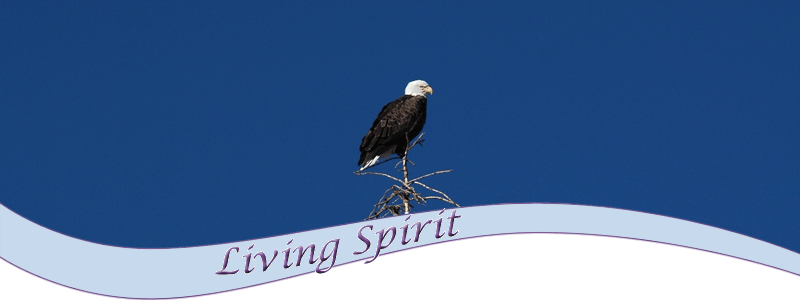Step Two: Define and implement the changes needed to stop behaving based on the above Doing.
This will require you in some areas to become a coach or teacher, rather than a doer. For you, this will be a spiritual discipline requiring time and effort. But the end results will be a better environment and growth opportunity for all. And once you have accomplished this, you can also identify further ways in which you can facilitate growth in others to assume responsibilities you have had. Become the mentor, not the doer.
Step Three: Identify where you are a sergeant, coach and manager to others and in your day-to-day responsibilities. Implement ways that you can move them toward a mentoring relationship.
A powerful way to improve your own performance in life and increase your focus on spiritual growth is based on a simple leadership chart. Leadership and teaching is about moving from being a sergeant to a mentor. In the beginning, we usually teach through being a highly directive and low supportive sergeant, barking out orders and providing a high level of feedback/criticism along the way. As our student, child, subordinate or relationship progresses, we can move to becoming a coach. The difference is that a coach provides a high level of supportive feedback (encouragement) in addition to a high level of directive instruction.
Next, further progress is made by becoming a manager. A manager is characterized by a high level of support and a low level of direct involvement. This is the coach without orders. Those who like co-dependency do not appreciate managers as much as coaches. Those who want to stand out independently as performers learn to embrace management (whether students, children or subordinates).
Our most spiritually productive and high performance leadership role is to become a mentor. A mentor is characterized by both a low level of direct involvement in a low level of supportive feedback. The mentor’s role is to facilitate review of areas of improvement, not just validating good performance. So, learn to Not-Do by becoming less directly involved and more in a mentor’s role to others.
Step Four: Learn to Not-Do through better time management. First, make a list of all your spiritual practices and day-to-day activities.
Another major way of learning to Not-Do is based on a time management system developed within business. More and more we are being conditioned within our culture to live based on priorities. Today's outer objective material world of multitasking places an over emphasis on priorities; doing what you need to do today and focus on many things tomorrow, or when you can.
Step Five: Now organize this list within your A, B, C’s of importance and level of priority to your spiritual growth.
Step Six: Maintain an on-going spiritualized to-do list with your A1’s first, A2’s second, A3’s next, then B1’s, B2’s, etc.
Learn to Not-Do by changing, delegating and avoiding your C’s, especially the C1’s that you’re routinely doing now. Learn to focus on your A1’s to A3’s. And give yourself a break. You will still have to do some B1’s or even some C1’s for a while. The key here is to re-orient your attitude and behavior as much as possible to what's important to your spiritual growth, rather than just what's of priority in your day-to-day life.
2nd Spiritualizing Habit:
Learn Not to Do
by Jef Bartow
A major emphasis on the Spiritual Path is to learn to transform our attitude, orientation and behavior. This is what each of our Spiritualizing Habits for Life is about. Our next habit will greatly add to the first habit described last month.
The idea of Not-Doing comes from Eastern mysticism. A core principle in this teaching is to detach and dis-identify from our outer objective orientation. Making this a practical Western practice can be powerful in accelerating our spiritual growth. Pragmatically, this Not-Doing can be translated into not behaving based on our conditioning and others’ expectations, only that which is supportive of our spiritual growth.
With that said, let's make it a reality in our day-to-day lives. First, a principle of high-performance in business is to become a facilitator rather than just a doer. If we can facilitate others to help accomplish common goals, we can accomplish much more than just doing it ourselves. This is a core part of becoming a leader, whether in business, education, religion or spiritual growth. The problem is that most people do not see how they can become a facilitator, only a doer.
9 Spiritualizing Habits
Our articles are available for reproduction for all members. Please give credit to the author.
For non-members, please contact us for permission to reproduce articles.
Images on this page provided by: Jenny McCarthy
Step One: Identify what you routinely do to compensate for existing problems, issues and others’ non-performance.
Becoming a facilitator is about facilitating change rather than just maintaining the status quo. First, how do you compensate for unresolved issues in your closest relationship? Do you continually clean up after a messy partner? As parents, what do you do to make sure your children learn or get the grades they need, or to overly insure they feel that you’re an important part of their life? In the extreme, haven’t you even heard about parents doing homework for their child, rather than teaching the child.
Socially, how much do you do to make sure the group interacts beyond what others do? Or how much time do you spend on the phone that does not contribute to the friendship? And what about community and other organizations; Do you attend every meeting even though some are un-productive?



